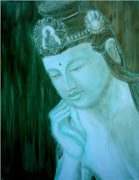[Review by Paula Tohline Calhoun, entitled The Scents of Memory, November 17, 2012]
[Review Source: http://paulatohlinecalhoun1951.wordpress.com/2012/11/17/the-scents-of-memory/]
~~Andrew Motion
~~Olive Schreiner
I am giving you the ball, son, and naming you the quarterback for your team in the game of life. I am your coach. I’ll give it to you straight. There is only one schedule to play—it lasts all of your life, but consists of only one game.
It is a long game with no timeout and no substitutions. You’ll have a great backfield. You’re calling the signals but the other three fellows in the backfield with you have great reputations. They are named Faith, Hope, and Love.
You’ll work behind a truly powerful line. End to end it consists of honesty, loyalty, devotion to duty, self-respect, study, and good behavior.
The goal posts are the Gates of Heaven. God is the referee and sole official. He makes all the rules and there is no appeal from them.
There is also an important ground rule. It is ‘as ye would that men should do to you, do ye also unto them.’
The ball? It is your immortal soul. Hold on to it.
Now, son, get in there and let’s see what you can do with it!

Then there was the bad weather. It would come in one day when the fall was over. You would have to shut the windows in the night against the rain and the cold wind would strip the leaves from the trees in the Place Contrescarpe. The leaves lay sodden in the rain and the wind drove the rain against the big green autobus at the terminal and the Café des Amateurs was crowded and the windows misted over from the heat and the smoke inside. It was a sad, evilly run café where the drunkards of the quarter crowded together and I kept away from it because of the smell of dirty bodies and the sour smell of drunkenness. The men and women who frequented the Amateurs stayed drunk all of the time or all of the time they could afford it; mostly on wine which they bought by the half-liter or liter. Many strangely named apéritifs were advertised, but few people could afford them except as a foundation to build their wine drunks on. The women drunkards were called poivrottes which meant female rummies.

The Café des Amateurs was the cesspool of the rue Mouffetard, that wonderful narrow crowded market street which led into the Place Contrescarpe. The squat toilets of the old apartment houses, one by the side of the stairs on each floor with two cleated cement shoe-shaped elevations on each side of the aperture so a locataire would not slip, emptied into cesspools which were emptied by pumping into horse-drawn tank wagons at night. In the summer time, with all windows open, you would hear the pumping and the odor was very strong. The tank wagons were painted brown and saffron color and in the moonlight when they worked the rue Cardinal Lemoine their wheeled, horse-drawn cylinders looked like Braque paintings. No one emptied the Café des Amateurs though, and its yellowed poster stating the terms and penalties of the law against public drunkenness was as flyblown and disregarded as its clients were constant and ill-smelling.
All of the sadness of the city came suddenly with the first cold rains of winter, and there were no more tops to the high white houses as you walked but only the wet blackness of the street and the closed doors of the small shops, the herb sellers, the stationery and the newspaper shops, the midwife—second class—and the hotel where Verlaine had died where you had a room on the top floor where you worked.
—Ernest Hemingway (A Good Café on the Place St.-Michel)The tv was on. Kids stared straight into the tube, heads held by miniature hands.
It was a black & white set, with a piece of green plastic glued to the tube. The old man liked it like that. It stayed like that. Period.
Kennedy was killed on that tv.
Vietnam was started on it.
It was a damned television.
